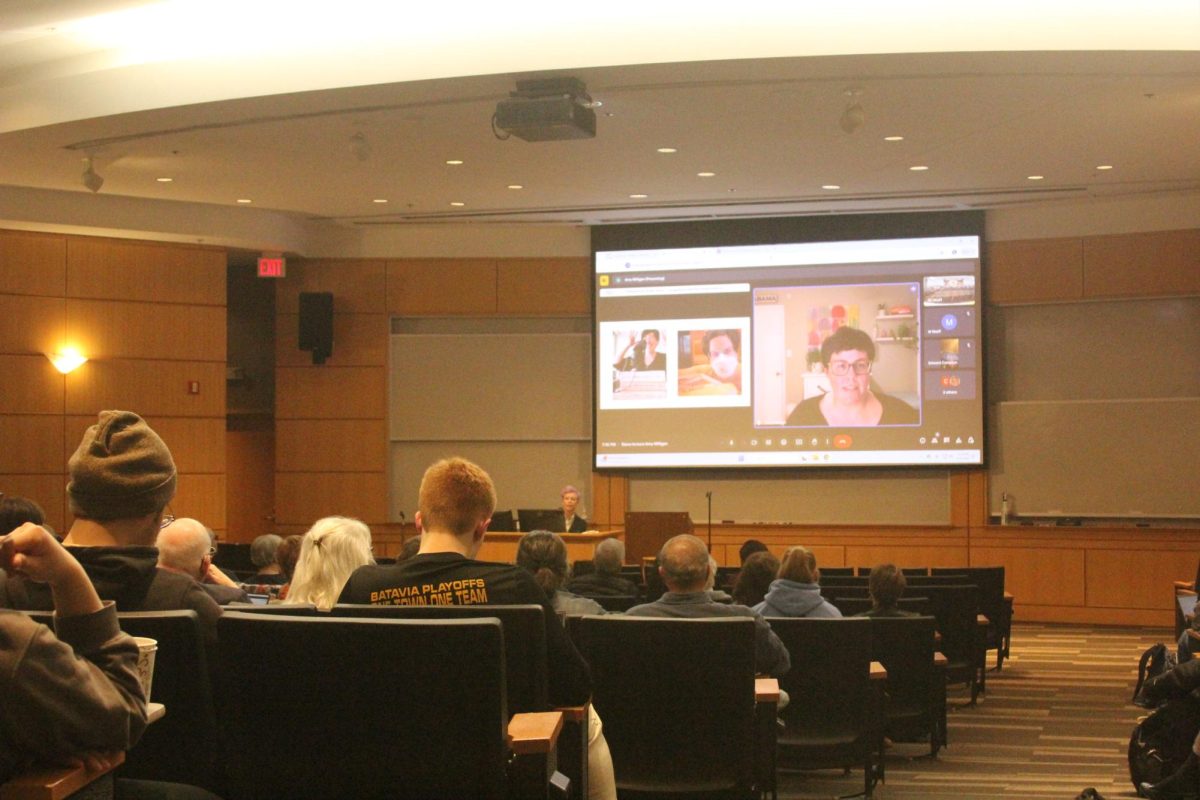People often avoid using the word “feminism” because over time it has developed negative connotations. But in 2014, celebrities, musicians and social leaders took a stand against the movement’s common misconceptions. Last October, “Parks and Recreation” actor and comedian Aziz Ansari openly discussed being a feminist on “The Late Show with David Letterman.”
Ansari explained everyone should consider themselves a feminist because, “if you look up the word ‘feminist’ in the dictionary, it means someone who believes men and women have equal rights.”
While his accurate definition may not include the beliefs of everyone, it does define a large group of people who are fighting against the feminist movement.
Last year, anti-feminist blogs, videos and memes popped up all over social media sites. One of the most common trends was the hashtag “Meninist Twitter,” which turned into a place for male Twitter users to mock feminism and voice complaints about the lack of support for men’s issues.
The most popular issues discussed with the hashtag included unfair relationships and unrealistic standards for male attractiveness. However, meninists voiced these concerns under an astronomical misunderstanding of what the feminist movement is and what it is working towards.
One common complaints by meninists was the way women are expected to be treated in dating or sexual situations. Men tweeted “Why can’t she open the door for me” and “Why can’t YOU ask ME out on a date for once?”
The traditional standards for dating were put in place several decades ago, when women were considered the weaker, less competent sex. This view fell in line with the idea that women are less employable than men, thus men were expected to pay for dinner on dates because they could afford to do so.
Feminism is working against these traditional, outdated, hurtful views of women. Feminism is about women opening a door for themselves, having a job and paying for their own meals.
In 2015, it seems absurd to even question if a woman should be able to do these things (i.e survive in the world), but anti-feminist backlash is stopping the conversation from moving much further.
Another trend with the hashtag “Meninist Twitter” was the issue of unrealistic standards for male attractiveness, and feminists only fight against female beauty standards. Men complained that they are only wanted sexually if they are a certain height and build.
What meninists are not realizing is that body-positive feminists are fighting against unrealistic standards for males, as well as for females. Images of “perfect” male bodies in the media are just as unattainable as that of females. The difference is that men are rarely told that their appearance is equal to their worth as a person.
Women are taught from childhood that their beauty and attractiveness is their contribution to the world. The beauty standard is rarely attained by anyone, leaving anyone on the outside feeling worthless.
Feminists believe human value shouldn’t depend on outer appearance, regardless of gender. Standards for women are more widely discussed because they lead to more mental, emotional, physical and societal problems.
The point meninists are missing is that feminists are not placing women over men; they are fighting for women’s rights because they are still fewer than men’s.
Putting women down inherently builds men up. This traditional veneration of the male sex is what led to the unfair and unrealistic standards meninists are complaining about.
Feminists recognize the struggle for human rights is difficult for everyone. But nobody’s situation can improve until women are treated as equals. Women require respect and solidarity to gain a societal balance among all genders. Then we can improve life together, as people.
'Meninism' means nobody wins
January 29, 2015
0
Tags:
More to Discover




































































































